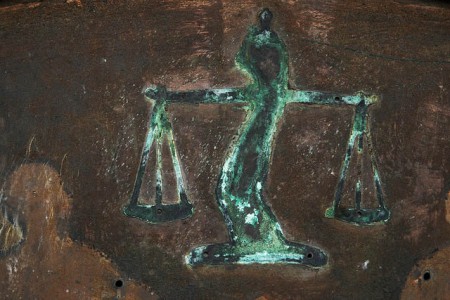Recent Judicial Council rulings have single-handedly hampered the WCA’s planned exiting of people, property, and resources from The United Methodist Church AND opened the pathway to revolutionizing The UMC. Here’s what can happen next.

What these rulings mean
Two recent rulings in May 2022 will have a significant impact.
The first ruling is about annual conferences: basically, any annual conference that was considering leaving the United Methodist Church for the Global Methodist Church cannot do that, and the only people that can give that permission is the General Conference when it next meets in 2024. Details here.
The second ruling is about bishops: basically, even though bishops are supposed to be elected following General Conference, the JC has given permission for them to be elected this year, with a slight technicality that if a bishop is elected after September, they are “interim” status until September 2023. Details here.
One final note is the episcopal elections ruling states that the number of bishops to be elected stays the same as 2016’s calculations, a final shutting-down of the Council of Bishops’ attempts to reduce the number of bishops by fiat.
A Looming Shift
Combined with the postponement of the General Conference to 2024, these two rulings cause significant shifts in the balance of power in The United Methodist Church.
The denial of exit ramps for annual conferences means that the Global Methodist Church starts with a bust not a bang with churches needing to individually disaffiliate through our established protocols passed at the 2019 General Conference by Traditionalists themselves. Now the rank and file of the Wesleyan Covenant Association can call on their leaders to focus their attention on local churches rather than manipulating conference rules and resolution shenanigans. Stop wasting your constituent’s money!
The episcopal elections ruling means that the regions of United Methodism in the United States can go ahead and elect new bishops this year without waiting for General Conference 2024. It also means with all likelihood, the electors of those bishops will be members of the 2019 progressive and centrist wave that rejected the actions of the hugely anti-gay 2019 General Conference. Given a two-year delay has caught several more bishops into forced retirement after Jurisdictional Conferences, there are significant percentages of bishops to be elected, by my calculations, 21 new elections, nearly a third of the active 66 bishops.
But more broadly, this new class of bishops would be shaped by the COVID-19 pandemic on the ground in ways that the current class of bishops experienced but didn’t have to pastor at the local church level. I would hope more local church pastors are elected to the episcopacy than conference staff–but that’s not likely to happen as, historically, conference staff are elected more often than local pastors.

A Warning Bell
There is a highly problematic issue in the ruling of the episcopal elections. Buried in there, it says if the jurisdictional elections are held after September 1st of this year, then those bishops elected will have to serve on an “interim” basis until the following September 2023.
While this seems like a distinction without a difference, there’s an important element to the interim appointments: according to ¶407, those appointments are made by the College of Bishops in that jurisdiction. So instead of a duly elected representative Jurisdictional Committee on the Episcopacy making those appointments, it would be the bishops themselves (current and new) choosing where those newly elected bishops serve.
It’s really unlikely that any college would go against the only time they are experiencing the appointment process, but could it? Yes, and especially possible in my own jurisdiction of the Western Jurisdiction where 4 out of 5 bishops are to be elected new. That’s anti-Methodist to replace representative authority with positional authority!
But more problematic is that interim appointments are approved by the global Council of Bishops. So if a jurisdiction elects an LGBTQ+ clergyperson as their new bishop, the Council of Bishops could refuse to assign them. If Bishop Oliveto had been elected in 2022, the Council could have refused to appoint her. Really! Is this scenario unlikely for 2022? Yes! But possible! It’s important to name the potential avenues rather than be caught unawares later.
It’s a whole can of worms that the Judicial Council didn’t have to open, but they did, and now we have a few uneasy months ahead with potential abuse of power on the horizon. Hopefully it passes without incident.
Next Steps
We’re waiting to know when the jurisdictional conferences are and who the episcopal candidates are (we’ll update this post when we know). But in the meantime, delegates to jurisdictional conferences and people with voting power at annual conferences can take action now to put into practice both of these rulings.
Jurisdictional Conference delegations have the opportunity to call on their college of bishops for an in-person jurisdictional gathering to elect new bishops. Virtual conferences are too problematic and too far-reaching of wrongdoing to be suitable to elect bishops. There have already been successful regional or national gatherings of UMs without incident. Contact your bishop now to express this request.
As well, jurisdictional conference delegations should vote for candidates who pledge to uphold the moratorium (“holding in abeyance”) on prosecutions of LGBTQ+ persons or who will refuse to enforce those unjust laws. 21 bishops who make that pledge could lead to more than half of the Council of Bishops being willing to take a stand for a more just church.
Annual Conference leaders and voting delegates have the opportunity to clarify disaffiliation requirements and should set more stringent and expensive disaffiliation requirements for any church leaving after Annual Conference 2023. This would encourage churches that want to leave to do so in the next year. If a church wants to leave with the most resources in-hand, they have the next year to figure it out. That gives all sides a year of breathing space before the General Conference in 2024.
May we live into this moment and help turn an unjust, wayward church into a reflection of God’s inclusive spirit.
Your Turn
Thoughts?
Thanks for reading, commenting, subscribing, and sharing on social media.


Thank you for this. I will continue to pray for the UMC
Smug.
It will be interesting to see what the bishops do with this. The ruling says the Bishop’s could call to meet their constitutional obligation, but it does not force them to do so. If the Council calls for regular sessions of the Jurisdictional Conferences, I am not sure how the agenda can be constrained to only the elections. To limit the agenda, each College could do a called session, but there are also questions around that. It will be interesting to see how much Jurisdictional planning gets kicked into high gear to meet the Sept 1st deadline. All in all, it is an interesting ruling that also brings ambiguity.
If a church wants to leave with the most resources they should wait until after General Conference and hope the Protocol Legislation passes. They won’t have to pay mission shares that are in arrears or pension liability upfront. Of course, the legislation should be amended to change that. As proposed it will be cheaper to leave after GC 2020 (thats actually in 2024).
Thanks yet again for the news and analysis. About the COB assigning its members to the ACs within the jurisdiction: yes, the Jurisdictional Episcopacy Committee’s responsibility for assigning the the Bishops to their Areas is in principle an extension of the “consultative process.” But like that process at the local level, in the end, the Bishop makes the appointment (sometimes to the consternation of the congregation.) This interim provision extends that practical reality.
It should also be said that the Jurisdictional Committees are as politicized as any other aspect of the system = duh! It’s people, and even with a sincere grasp and assertion of the principle of conferencing, it’s still people gaming the discussion to their preferences.
Stepping back, the question should be: in what ways could the COB mis-use this authority to assign themselves? Esp. in the WJ with four newbies who’ve just garnered the support of a majority to serve, the distribution of assignments will come down to mostly practical matters– same as many local charge appointments: it’s an extension of ‘putting the big rocks in the jar first’. No matter where they are located, they will each be stuck with an overwhelming job.
Bottom line: this is not a job anyone really wants– not anyone who knows what it demands. Those who are lured by the shiny brass shepherd’s crook should fall to the bottom of the voting tallies quickly, given the practical cynicism that our current polarizations and GC delays have cultivated.
Those who do know the job of “spiritual and temporal oversight” and are willing to run will have to bring a tremendous reservoir of both conviction and grit, whatever their other gifts might be: it must truly be a calling.
My hunch is the real hazard for the church is that its need for leadership — local and episcopal– may be subject to the same post-pandemic labor shortages constraining so many businesses and institutions these days.
Lord help us all!